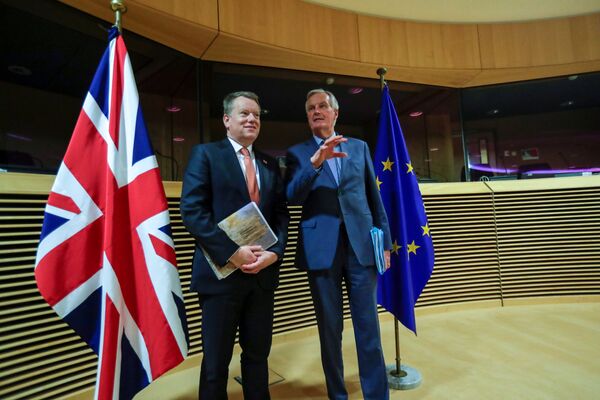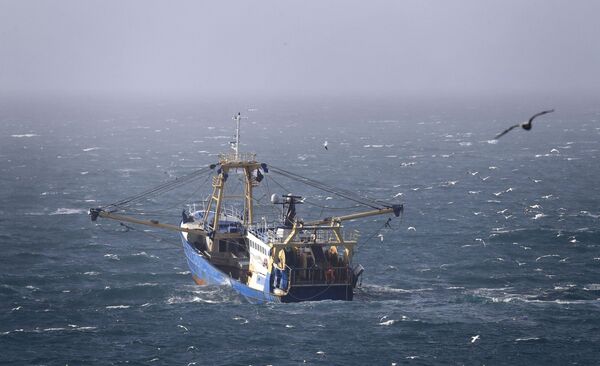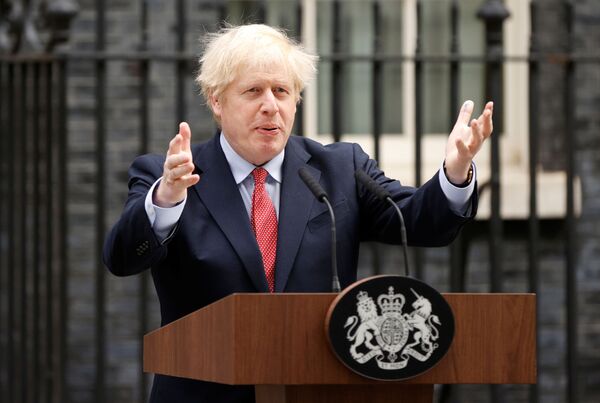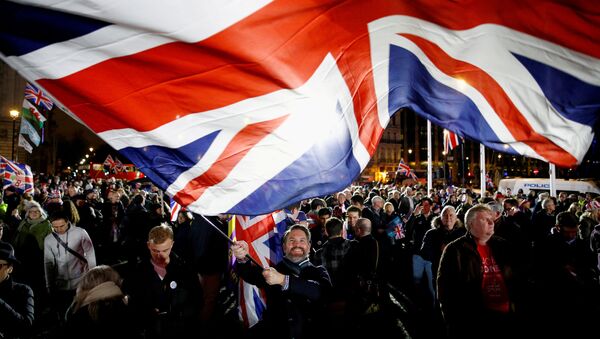As talks with Brussels resumed by videoconference after a six-week standstill generated by the coronavirus pandemic, Boris Johnson has warned EU leaders they will have to change their stance if there is any hope for a post-Brexit trade deal, according to the Financial Times.
Time is fast running out, as a decision on extension of the 31 December 2020 deadline for the transition period must be taken by the end of June, according to the terms of the divorce deal.

As both sides mull over whether an agreement is possible, it is suggested that while Downing Street is still inclined to believe the negotiations might continue, an agreement is unlikely unless it stipulates recognition of the UK’s status as “an independent state”.
A Downing Street official was cited by the Financial Times as suggesting that heads of government might be called upon to urge Brussels to revise its negotiating terms, adding:
“Clearly there will need to be some political movement on the EU side.”
A day earlier, Cabinet Office minister Michael Gove told MPs on the Future Relationship with the EU Committee on 27 April that the economic and health crisis triggered by the coronavirus was no excuse to seek an extension to the country’s post-Brexit transition period.
“Coronavirus in some respects should concentrate the minds of EU negotiators in underlining the importance of coming to a conclusion,” said Gove.
Emphasising that the UK had no wish to be tied to EU rules and regulations beyond 31 December, Gove added that years of Brexit talks with Brussels had made it clear that “whenever a deadline was extended, the light at the end of the tunnel was replaced by more tunnel”.
Gove warned that a prolongation of the transition period would force the UK to make a financial contribution to the EU budget that “could be spent on our NHS” and comply with newly-adopted European laws “over which we would have no say”.
“We believe it is still entirely possible to conclude negotiations on the timetable that has been outlined,” said Gove.
The minister made the statements after the European Union's chief Brexit negotiator, Michel Barnier, deplored "disappointing” progress in the trade talks, as the first of three rounds planned before June broke up last week with no hopes of early breakthroughs, and accused the UK side of a “failure to engage” with Brussels on key issues.
Flashpoint Issues in Talks
If a post-Brexit deal is to become reality, the UK insists that the EU review its demands for guaranteed long-term access to the UK’s fishing waters.
Brussels seeks a treaty preserving a large part of the bloc’s currently-existing fishing rights.

However, the UK has offered to agree to the kind of agreement the bloc has with Norway, allowing for annual review of the terms of access to waters.
“Their behaviour suggests that they regard the UK not as a fully sovereign independent state,” said Gove, commenting on the contentious issue.
As talks broke up on Friday, Brussels’s negotiator Michel Barnier warned that no trade deal would be signed without guarantees on fishing rights.
Another core feature of the future deal that Britain is opposed to is signing up to a regulatory “level playing field,” that would oblige it to maintain EU standards on workers' rights, environmental protection and state subsidies.
The EU has emphasised it wants to ensure that trade with the UK is fair and competitive, pointing out that Britain is a large economy that is geographically close to the single market.
Brussels would also prefer to have one single treaty cover its entire relationship with Britain, including a governance system. While rejecting this, the UK insists there are international precedents for the relationship it seeks, that would be based on a standalone trade deal.
Brussels has been underscoring that its terms take into account the unique circumstances of Brexit and that the UK demands unprecedented market access for a state outside the single market.
Gove also touched upon the EU’s demand that Britain remain committed to the European Convention on Human Rights.
While confirming that the UK government would continue to uphold the international accord, Gove underscored the “challenge” in negotiations on the issue was rooted in demands from the bloc that “adherence to the ECHR be through a particular set of processes and instruments”.
Talks Enter Crucial Stage
As Prime Minister Boris Johnson resumed work on Monday after recovering from the coronavirus, he is anticipated to take on a more personal role in the crucial stage of the talks, two rounds of which are scheduled ahead of an EU-UK summit in June.

As UK officials acknowledge a “political impetus” might be called for to lend fresh impetus to the stalled negotiations before June’s deadline for seeking an extension, the prime minister’s spokesman insisted that Boris Johnson would not seek more time to hammer out a deal:
“Nobody should be in any doubt the transition period will end on December 31.”


